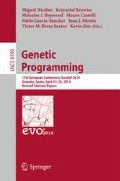Abstract
Symbolic regression has many successful applications in learning free-form regular equations from data. Trying to apply the same approach to differential equations is the logical next step: so far, however, results have not matched the quality obtained with regular equations, mainly due to additional constraints and dependencies between variables that make the problem extremely hard to tackle. In this paper we propose a new approach to dynamic systems learning. Symbolic regression is used to obtain a set of first-order Eulerian approximations of differential equations, and mathematical properties of the approximation are then exploited to reconstruct the original differential equations. Advantages of this technique include the de-coupling of systems of differential equations, that can now be learned independently; the possibility of exploiting established techniques for standard symbolic regression, after trivial operations on the original dataset; and the substantial reduction of computational effort, when compared to existing ad-hoc solutions for the same purpose. Experimental results show the efficacy of the proposed approach on an instance of the Lotka-Volterra model.
All authors contributed equally and their names are presented in alphabetical order.
Access this chapter
Tax calculation will be finalised at checkout
Purchases are for personal use only
Preview
Unable to display preview. Download preview PDF.
References
Schmidt, M., Lipson, H.: Distilling free-form natural laws from experimental data. Science 324(5923), 81–85 (2009)
Pickardt, C., Branke, J., Hildebrandt, T., Heger, J., Scholz-Reiter, B.: Generating dispatching rules for semiconductor manufacturing to minimize weighted tardiness. In: Proceedings of the 2010 Winter Simulation Conference (WSC), pp. 2504–2515. IEEE (2010)
Soule, T., Heckendorn, R.B.: A practical platform for on-line genetic programming for robotics. In: Genetic Programming Theory and Practice X, pp. 15–29. Springer (2013)
Koza, J.R.: Genetic Programming: On the programming of computers by means of natural selection, vol. 1. MIT Press (1992)
Babovic, V., Keijzer, M., Aguilera, D.R., Harrington, J.: An evolutionary approach to knowledge induction: Genetic programming in hydraulic engineering. In: Proceedings of the World Water and Environmental Resources Congress, vol. 111, p. 64 (2001)
Cao, H., Kang, L., Chen, Y., Yu, J.: Evolutionary modeling of systems of ordinary differential equations with genetic programming. Genetic Programming and Evolvable Machines 1(4), 309–337 (2000)
Iba, H.: Inference of differential equation models by genetic programming. Information Sciences 178(23), 4453–4468 (2008)
Bernardino, H.S., Barbosa, H.J.C.: Inferring systems of ordinary differential equations via grammar-based immune programming. In: Liò, P., Nicosia, G., Stibor, T. (eds.) ICARIS 2011. LNCS, vol. 6825, pp. 198–211. Springer, Heidelberg (2011)
Keijzer, M.: Inducing differential/flow equations. Invited talk to the GECCO Conference (July 2013)
Zill, D.G.: A First Course in Differential Equations: With Modeling Applications. Cengage Learning (2008)
Euler, L.: Institutionum calculi integralis. Imp. Acad. imp. Saènt, vol. 1 (1768)
Vanneschi, L., Castelli, M., Silva, S.: Measuring bloat, overfitting and functional complexity in genetic programming. In: Proceedings of the 12th Annual Conference on Genetic and Evolutionary Computation, pp. 877–884. ACM (2010)
O’Neill, M., Vanneschi, L., Gustafson, S., Banzhaf, W.: Open issues in genetic programming. Genetic Programming and Evolvable Machines 11(3-4), 339–363 (2010)
Lotka, A.J.: Contribution to the theory of periodic reactions. The Journal of Physical Chemistry 14(3), 271–274 (1910)
Goodwin, R.M.: A growth cycle. In: Socialism, Capitalism and Economic Growth, pp. 54–58 (1967)
Author information
Authors and Affiliations
Editor information
Editors and Affiliations
Rights and permissions
Copyright information
© 2014 Springer-Verlag Berlin Heidelberg
About this paper
Cite this paper
Gaucel, S., Keijzer, M., Lutton, E., Tonda, A. (2014). Learning Dynamical Systems Using Standard Symbolic Regression. In: Nicolau, M., et al. Genetic Programming. EuroGP 2014. Lecture Notes in Computer Science, vol 8599. Springer, Berlin, Heidelberg. https://doi.org/10.1007/978-3-662-44303-3_3
Download citation
DOI: https://doi.org/10.1007/978-3-662-44303-3_3
Publisher Name: Springer, Berlin, Heidelberg
Print ISBN: 978-3-662-44302-6
Online ISBN: 978-3-662-44303-3
eBook Packages: Computer ScienceComputer Science (R0)

